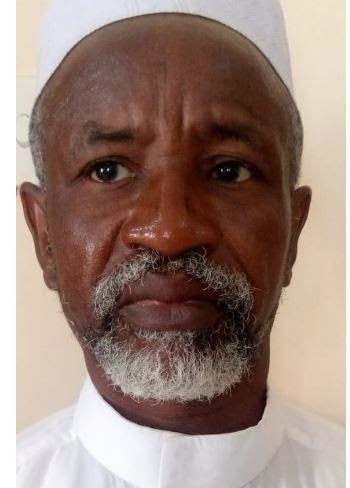Foreword
I am pleased to present these proceedings, which reflect the intellectual rigor and timely relevance of the First International Conference of the Faculty of Humanities, Federal University Gusau, themed "Rethinking Security through the Lens of Humanities for National Development." This conference has been an essential intervention in addressing the security challenges facing our region, offering valuable and nuanced perspectives from the humanities.
Federal
University Gusau steadfastly upholds its commitment to academic excellence,
fostering a vibrant intellectual environment through rigorous academic
engagement. This dedication is realized by providing an enabling environment
for both teaching and learning, ensuring that students and faculty alike can
thrive. Recognizing the importance of safety and security in achieving these
goals, the university actively collaborates with federal security agencies and
local security stakeholders. This collaborative approach ensures a secure and
stable environment conducive to academic pursuits, allowing the university
community to focus on the pursuit of knowledge and scholarly achievement.
This conference, organized by the Faculty of
Humanities, underscores our dedication to addressing security issues and our
relentless pursuit of solutions—not only in Zamfara but across Nigeria, with a
focus on peace and sustainable national development.
The papers presented, alongside the engaging
discussions and contributions from scholars both within Nigeria and
internationally, highlight the strength and vibrancy of the academic community
we nurture. These efforts also foster stronger collaborations between academia
and security agencies.
Our aim is to transcend conventional security
models and examine the complex socio-cultural and ethical dimensions of
insecurity. The conference provided a platform for meaningful dialogue,
deepening our understanding of this multifaceted issue. The papers analyzed
insecurity in the North West, identifying key factors such as widespread
poverty, corruption, insufficient security infrastructure, policy flows, high
youth unemployment. These discussions also explored how these issues intersect
with socio-cultural and ethical considerations.
Several papers examined the role of Islamic
principles in governance, advocating for shura
(mutual consultation), accountability, transparency, justice, and equality.
Researchers highlighted the importance of addressing the root causes of
insecurity through ethical governance and sound policy frameworks. Discussions
centred on the role of religious teachings in fostering social cohesion, the
destructive impact of corruption on security, and the need for active community
engagement. Additionally, there were calls for youth skills development
programs, better implementation of existing security policies, and stronger
partnerships between academic institutions and government institutions.
The diverse perspectives shared in Hausa,
Arabic, and English enriched our collective understanding of this pressing
issue. I extend my heartfelt appreciation to all participants for their
invaluable contributions and express deep gratitude to the security agencies
for their unwavering commitment to ensuring a safe and secure environment
throughout the conference. I also offer my sincere thanks to the individual
whose generous support made this event possible.
The conference concluded with a shared
recognition of the complex nature of insecurity and the urgent need for
comprehensive, multi-dimensional solutions. Emphasizing the importance of
addressing root causes, promoting ethical governance, and fostering community
participation, the conference reaffirmed the vital role of the humanities in
shaping effective security strategies.
These proceedings offer a crucial resource for
policymakers, researchers, and community leaders working to understand and
address the complexities of insecurity. It is essential that the
recommendations from our esteemed participants, alongside insights from
academic and expert contributors, be diligently pursued. Only through such
collective efforts can we hope to achieve lasting peace and security.
Professor Mu’azu Abubakar





